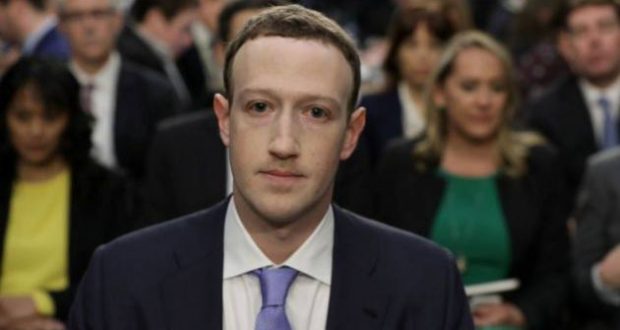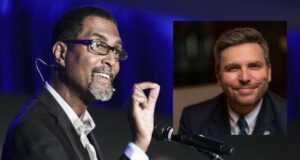Facebook CEO Mark Zuckerberg is appearing on Capitol Hill this week with often awkward answers as he responds to questions about the the power of the social media giant and the privacy rights of users.
With the exception of Senators Ted Cruz and Ben Saase, most senators steered away from issues of censorship and bias. Those issues are to many, more important than a third party gaining access to information provided through an online poll by Facebook users. Zuckerberg refused to answer questions concerning bias, only repeating that Facebook does not censor conservative speech.
The hearings come as a group of broadcasters asked Congress to confront the billionaire, during testimony, about allegations Facebook routinely blocks images and content with a conservative message.
Earlier this week, social media personalities Diamond and Silk accused Facebook of blocking their nearly 1.4 million viewers from receiving updates because they were deemed offensive.
Specifically, they say the social media giant labeled their content “unsafe to the community.”
Facebook was asked to respond to the concerns by Diamond and Silk.
The sisters, who are ardent supporters of President Donald Trump, told Fox News they were appalled by this new classification, saying they are just “two black chicks who are down with politics.”
“What we’re raising awareness of is that really across the board – Facebook, Twitter, Instagram, Google, GoFundMe, Apple, the App Store – you’ve got really the censorship of Christian content and conservative content across the board,” Dr. Jerry Johnson, president and CEO of the National Religious Broadcasters.
“We think Mr. Zuckerberg really should answer questions about that,” he continued.
A Facebook spokesperson responded to a request by to addresses Johnson’s concerns over censorship. Facebook responded it does not have policies against religious or political views but is a platform for community and fostering conversations that are diverse – and welcomes ideas of all kinds.
The only exceptions according to the spokesperson would be in relation to bullying, harassments, criminal threats or activities and the selling of regulated goods.
The sites Community Standards website states, “Our mission is to give people the power to build community and bring the world closer together… The conversations that happen on Facebook reflect the diversity of a community of more than two billion people. ”
It goes on to say, “We want people to feel safe when using Facebook. For that reason, we’ve developed a set of Community Standards.”
It outlines them with the topics of safety, respectful behavior and keeping your account secure.
Zuckerberg has long prided himself on building a global online community. In a 2017 message, the tech genius told users he was committed to building a platform that will “bring humanity together” to reframe the world into a better place.
“In times like these, the most important thing we at Facebook can do is develop the social infrastructure to give people the power to build a global community that works for all of us,” Zuckerberg said.
But some want to find out from Zuckerberg if his new global community includes them.
The National Religious Broadcasters points to several instances in which Christian themes were deleted or banned. In one instance, a Catholic university put up a picture of a cross to commemorate Easter. Facebook rejected the ad because it did not meet its standards.
After a secondary review, the social media giant reversed their initial censorship of the ad. Still, NRB leaders want to know what was so “shocking, sensational, or excessively violent” to cause it to be initially censored.
A Facebook spokesperson answered a question about this specific case saying, “Our team processes millions of ads each week, and sometimes we make mistakes. This image does not violate our ad policies. We apologize for the error and have already let the advertiser know we approved their ad.”
“Well, let’s face it, the values of Silicon Valley are not conservative values; they’re not Christian values,” Johnson said. “Everybody’s talking about the data breach and Cambridge Analytica, and the point was that they were using your information to send you messages to affect the political campaign.”
“So it was about messages being sent to affect a political outcome,” he continued. “But actually this is the other side of the question, which is content taken away – that is, conservative content and Christian content on Facebook, maybe sent to you by friends or news organizations you trust.”
“Those things are being kept from you in the heat of a political campaign or just in the national debate of the day – whatever it might be about,” Johnson said.
“Silicon Valley does not want conservative talk and Christian talk; they want to push progressive and leftist values. It’s just the fact,” he added.
Zuckerberg even touched on that topic in his testimony Tuesday when Sen. Ted Cruz, R – TX asked him if Facebook had political bias.
“I understand where that concern is coming from; as Facebook and the tech industry are located in the Silicon Valley, which is an extremely left-leaning place. And this is actually a concern that I have, that I try to root out in the company, is making sure that we don’t have any bias in the work that we do,” Zuckerberg answered to Cruz.
Johnson said NRB reached out to Zuckerberg and others to address the alleged violations.
“Well, we have reached out to them with a letter, a formal letter; we haven’t gotten a formal response,” Johnson explained.
The NRB wants Congress to hold Zuckerberg’s feet to the fire over these allegations of censorship.
They say there are five major questions he should answer, including how the social media juggernaut defines “hate speech” and how they respond to comments by Federal Communications Commission Chairman Ajit Pai, who acknowledged that some social media platforms “routinely block or discriminate against content they don’t like.”
The NRB is not alone in its concerns with Facebook’s policies on free speech.
In December, NRB launched Internet Freedom Watch, a website where Johnson said visitors will find a timeline of alleged social media censorship. He said they can enter their own censorship examples.
“Tell your story – if you feel like your site has been taken down, your post (has) been removed, your tweet has been shadowed or ghosted in some way,” he told CBN News. “And we want to have sort of a clearinghouse for all of these examples.”
 Metro Voice News Celebrating Faith, Family & Community
Metro Voice News Celebrating Faith, Family & Community









